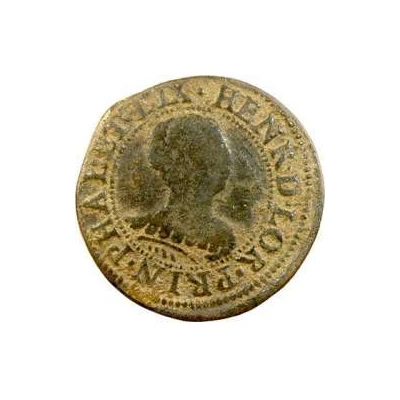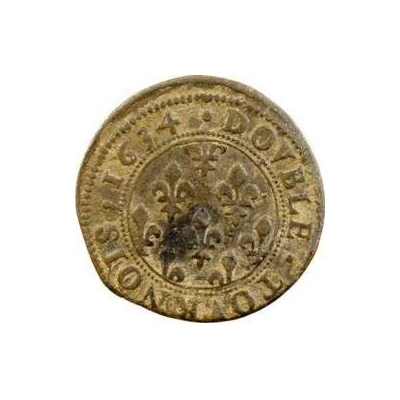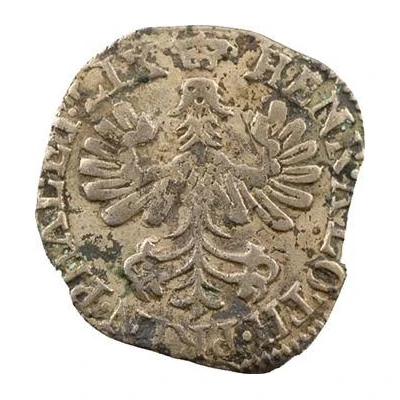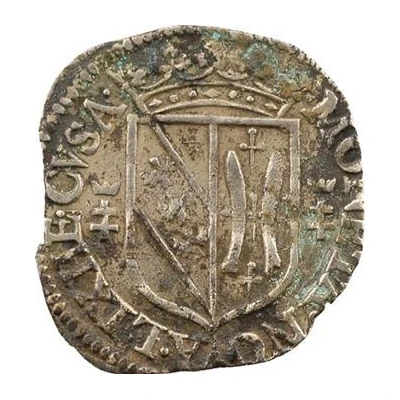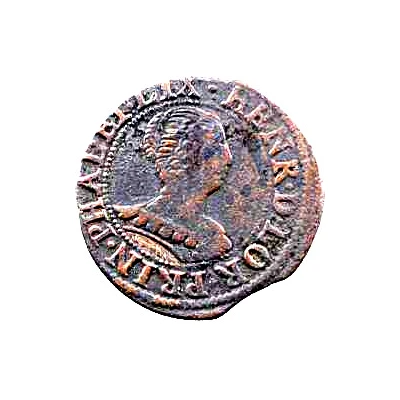
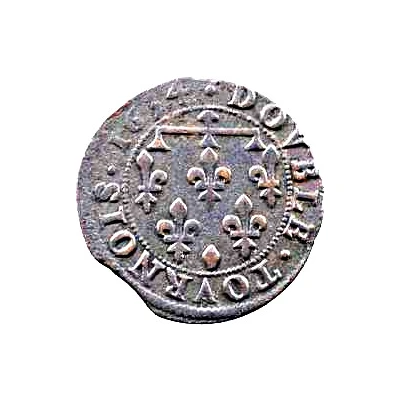

© iNumis
Double Tournois - Henriette of Lorraine 2nd type
1634 year| Copper | 2.5 g | 20 mm |
| Issuer | Principality of Phalsbourg and Lixheim (French States) |
|---|---|
| Princess | Henriette of Lorraine (1629-1660) |
| Type | Standard circulation coin |
| Year | 1634 |
| Value | 2 Deniers (1⁄120) |
| Currency | Livre Tournois |
| Composition | Copper |
| Weight | 2.5 g |
| Diameter | 20 mm |
| Shape | Round |
| Orientation | Coin alignment ↑↓ |
| Demonetized | Yes |
| Updated | 2024-10-04 |
| Numista | N#54194 |
|---|---|
| Rarity index | 95% |
Reverse
Value and minting year surrounding a circled fleur-de-lis field under a label of three points.
Script: Latin
Lettering: DOVBLE.TOVRNOIS.1634
Edge
Plain
Comment
The letters in brackets are indications about varieties of the same coin.Obverse variants:
.HENR.A.LOTH.PRIN.PHAL.ET.LIX (a)
.HENR.D.LOR.PRIN.PHAL.ET.LIX (b)
Henriette, sister of the Duke Charles IV, had rights to struck coins in an old mint in Lixheim. This mint mainly stroke neighbour nation imitations such as France, Lorraine (under French occupation) or Spanish Netherlands. There imitations were quickly withdrawn and denounced by the concerned territories. She also stroke "legitimate" coins in the German currency system (2 kreutzer, 24 kreutzer teston) up to the principality occupation by French and Swedish troops and the Lixheim fortress dismantlement in 1634-1635 following commands of the French king.
This doubles tournois is a variation issued in order to cancel the royal withdrawal over Phalsbourg and Lixheim coinage.
Interesting fact
The Double Tournois coin was used as a form of currency in the Principality of Phalsbourg and Lixheim, which were two small territories in the French States. What's interesting is that the coin was minted in 1634, during a time when many European countries were still using bartering or other forms of exchange, rather than standardized coins. The fact that the Principality of Phalsbourg and Lixheim had their own standardized currency speaks to their level of economic development and sophistication at the time.
